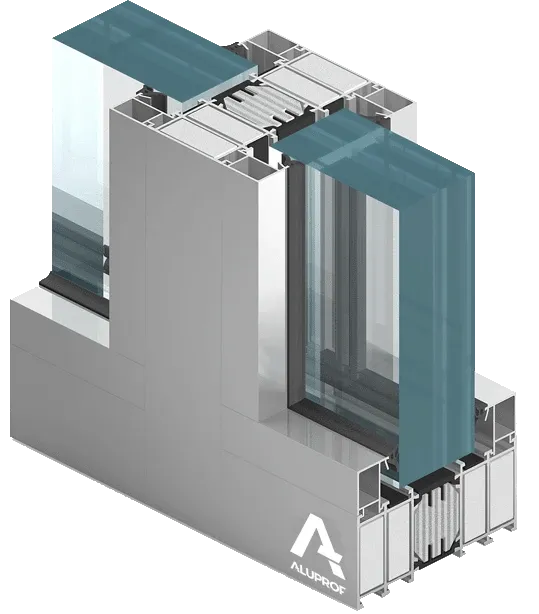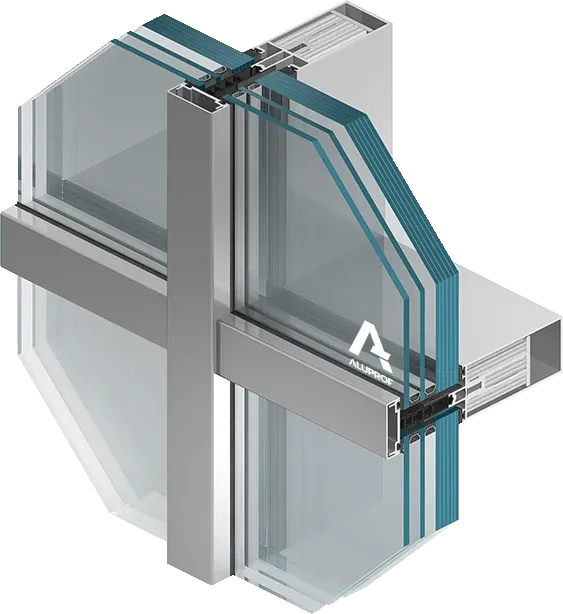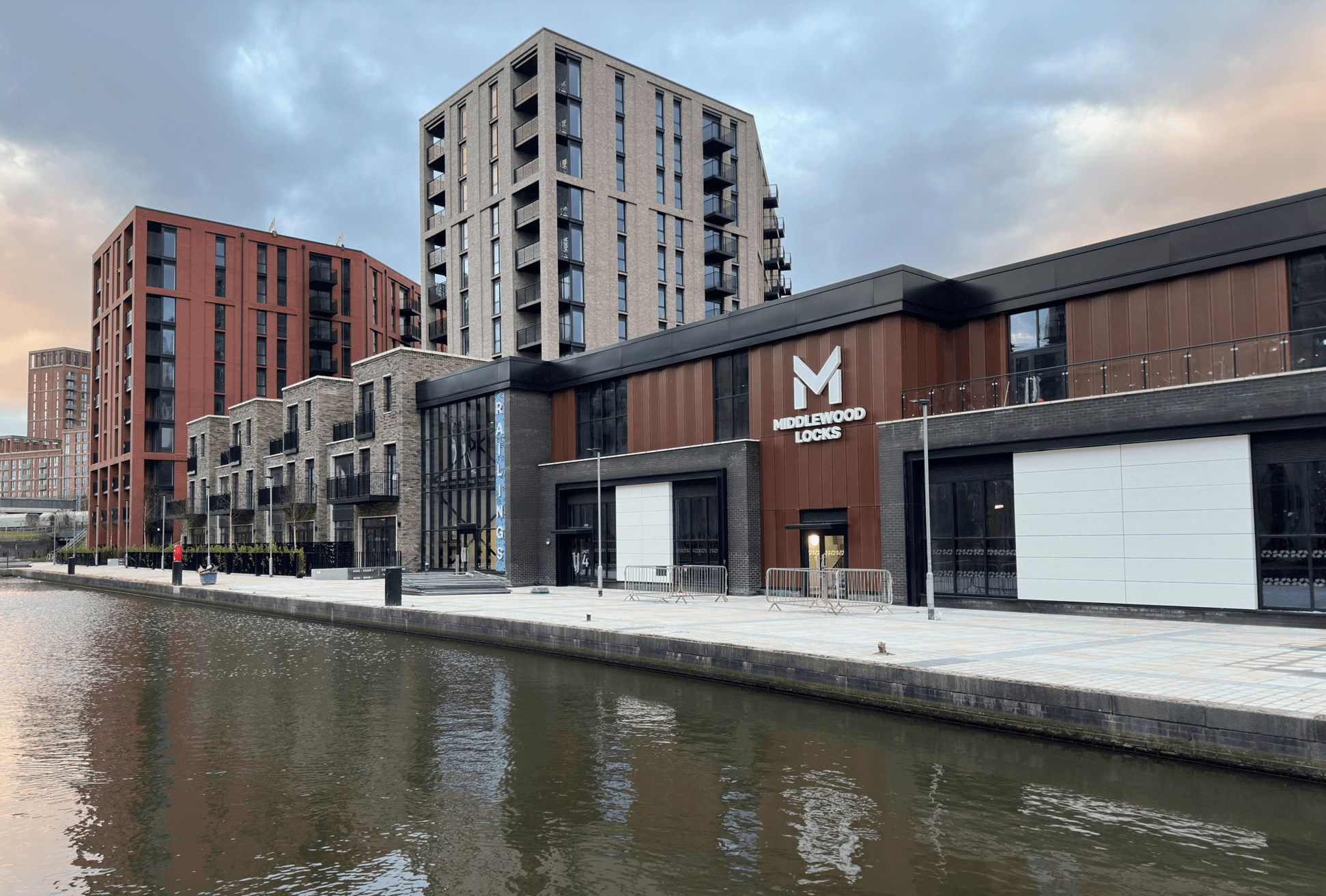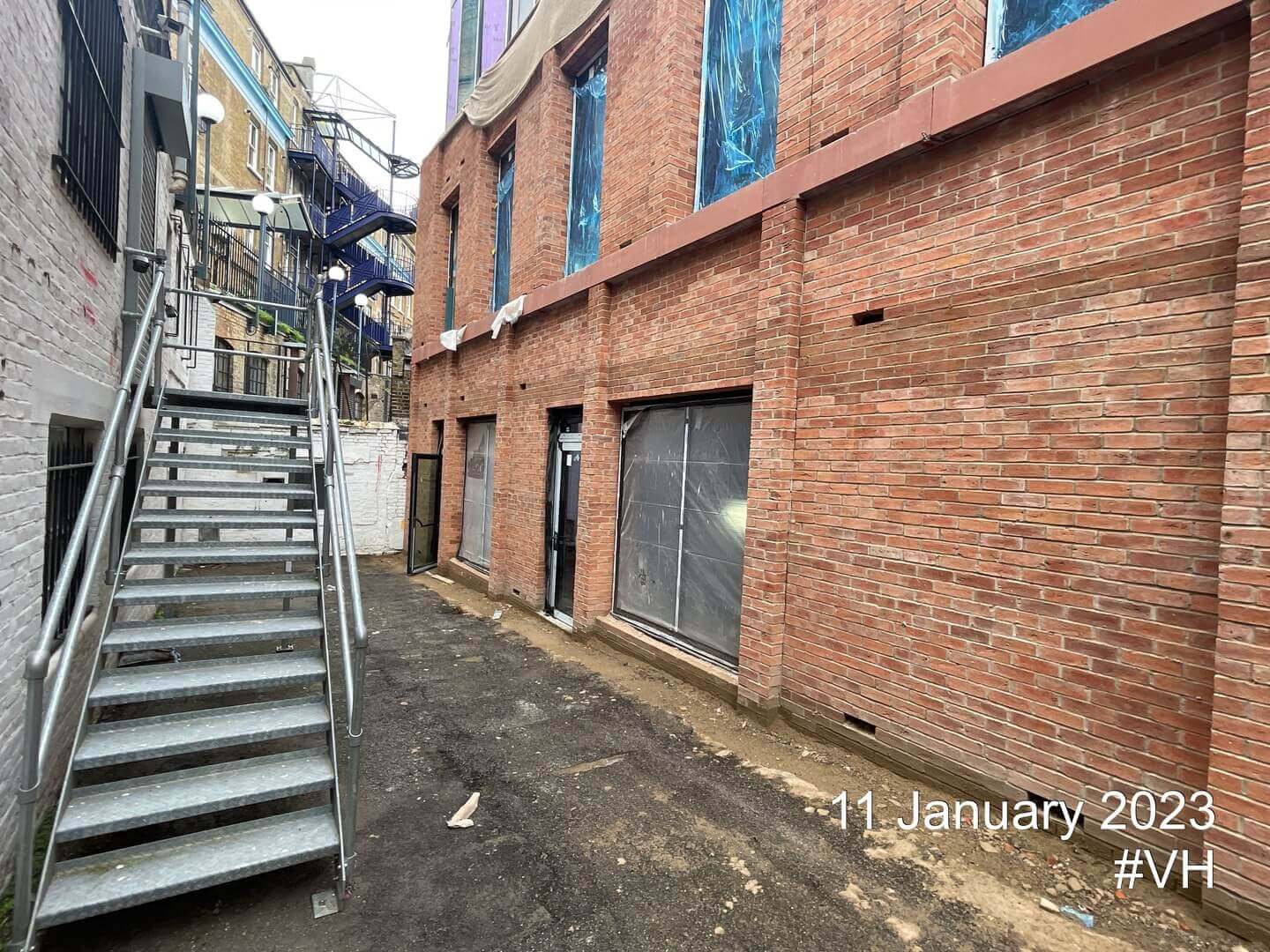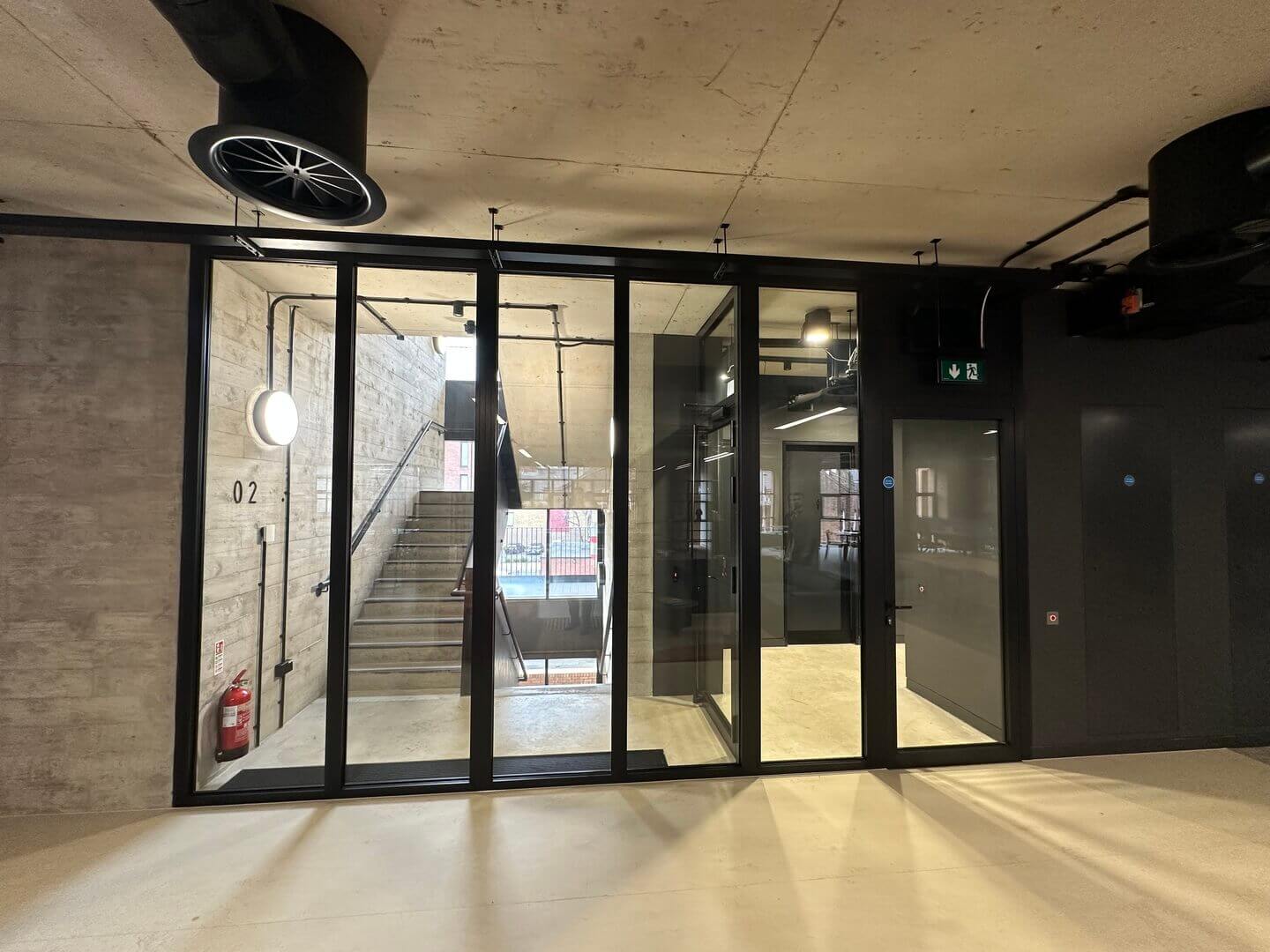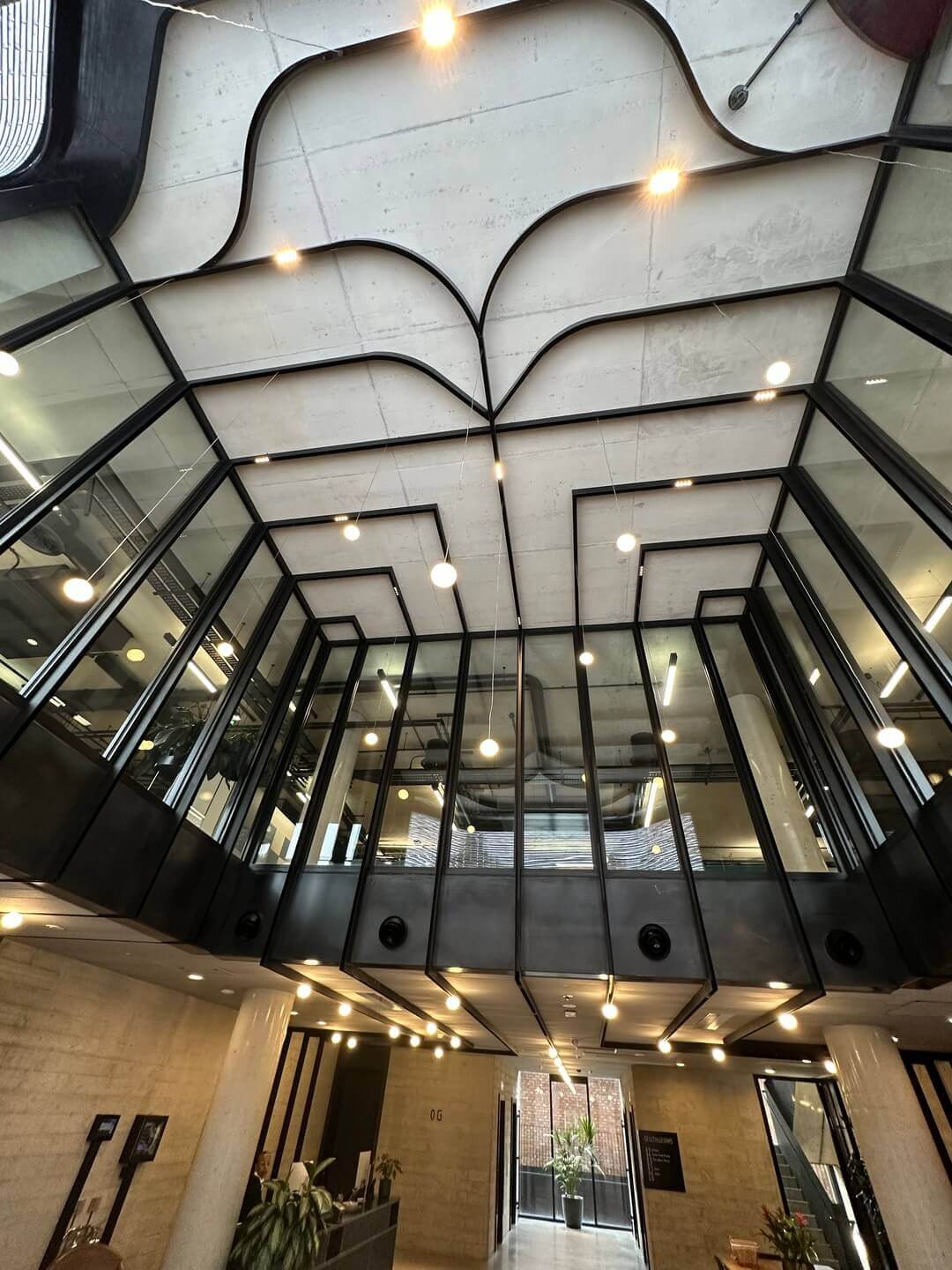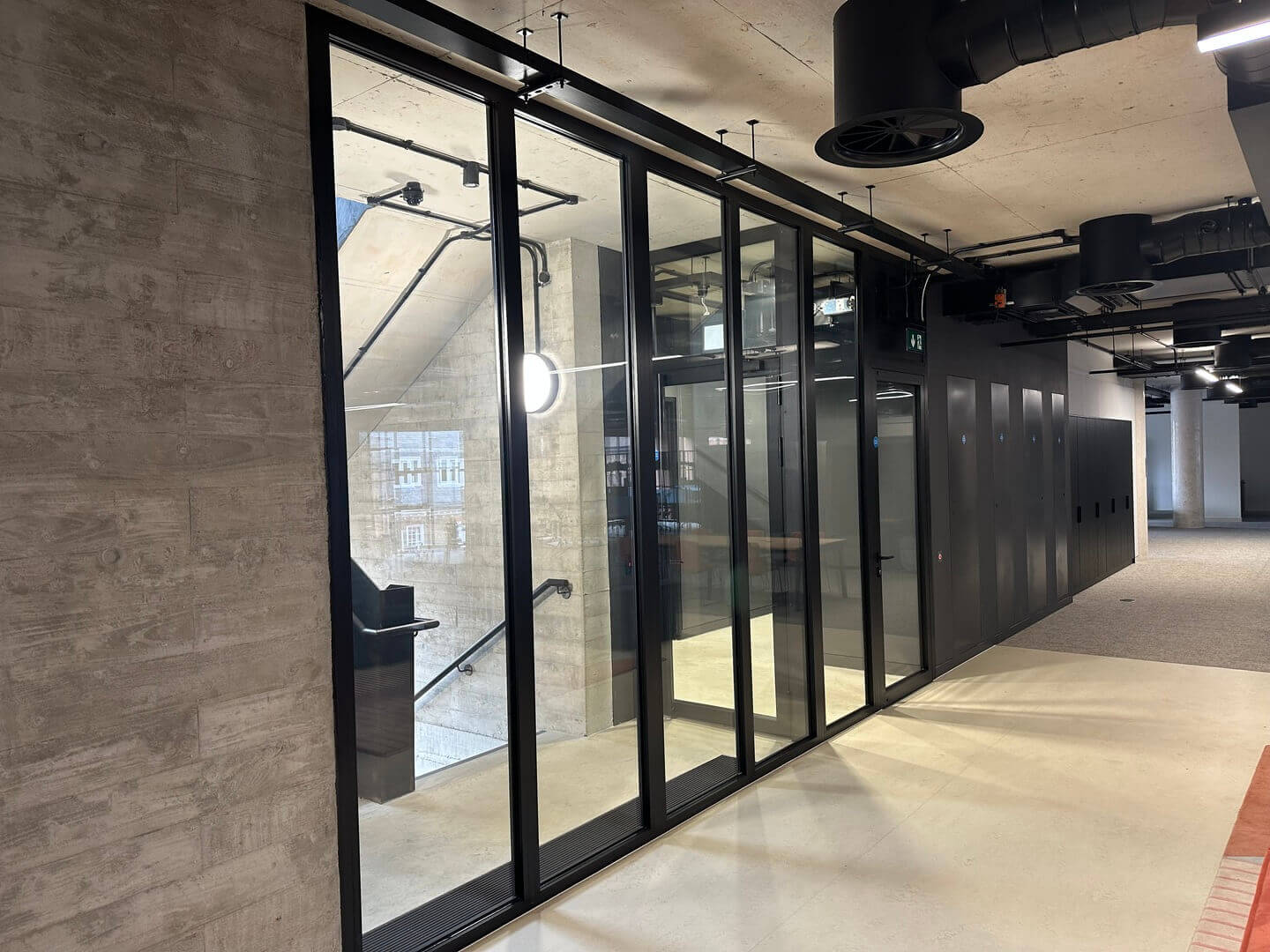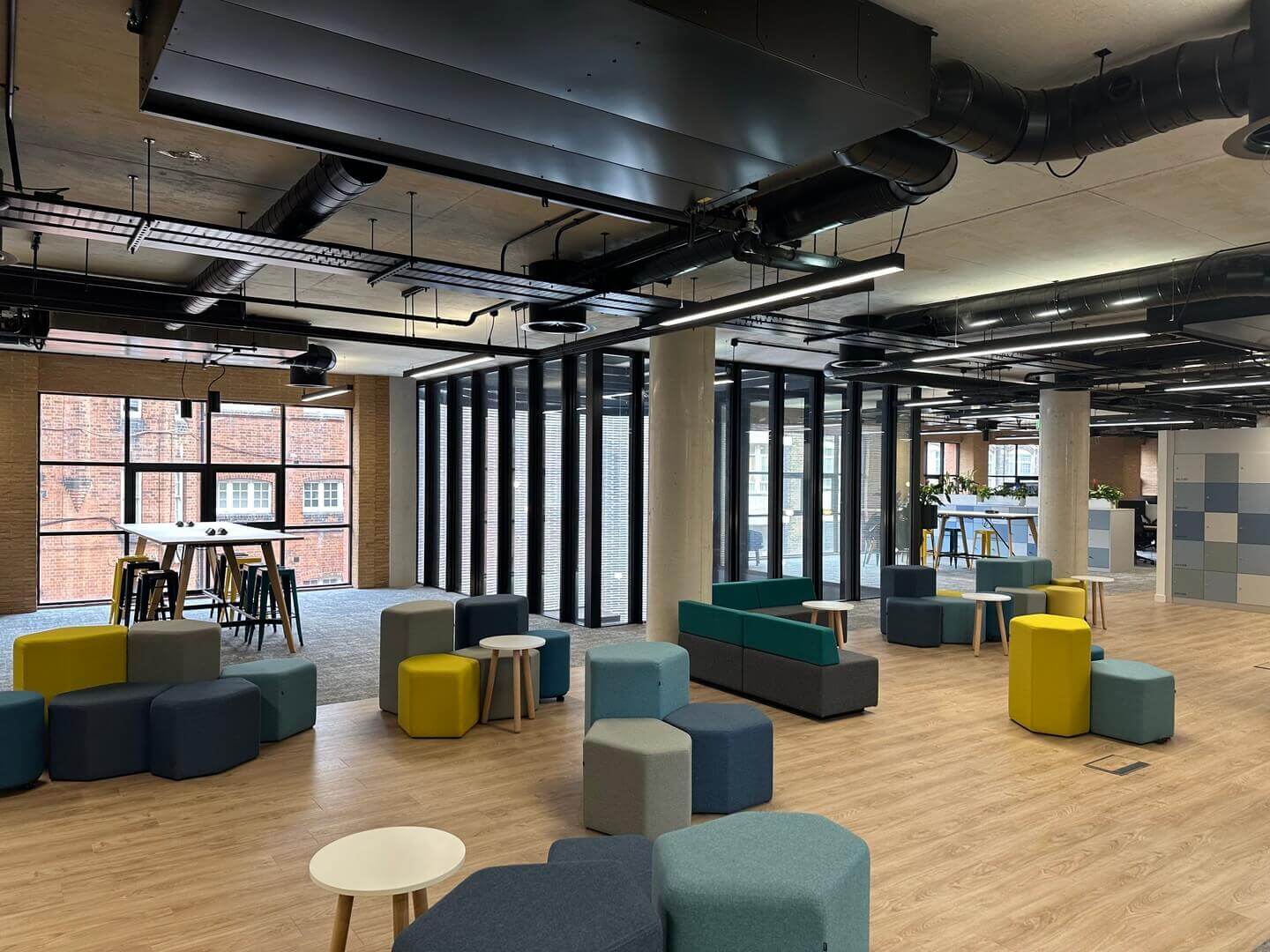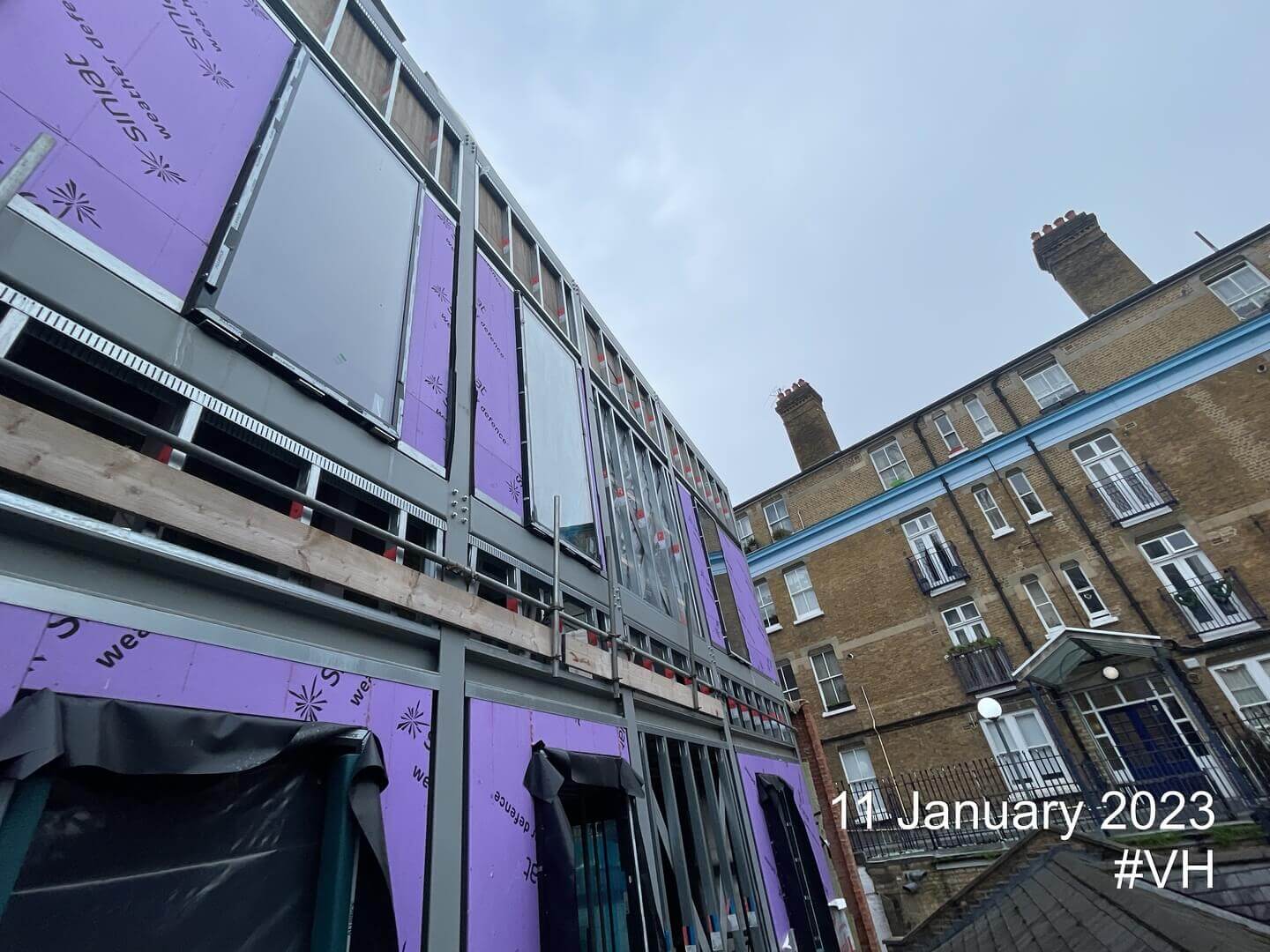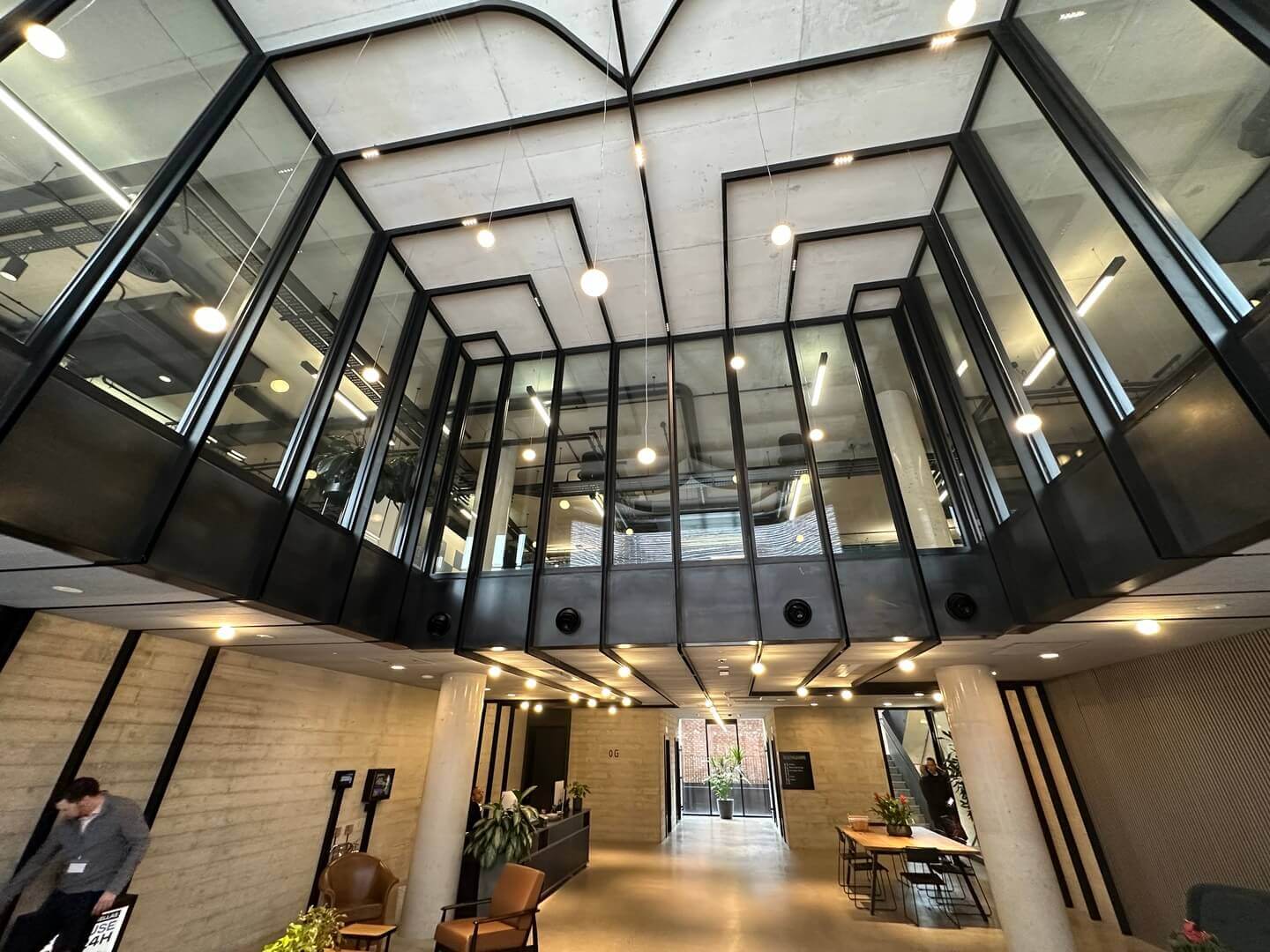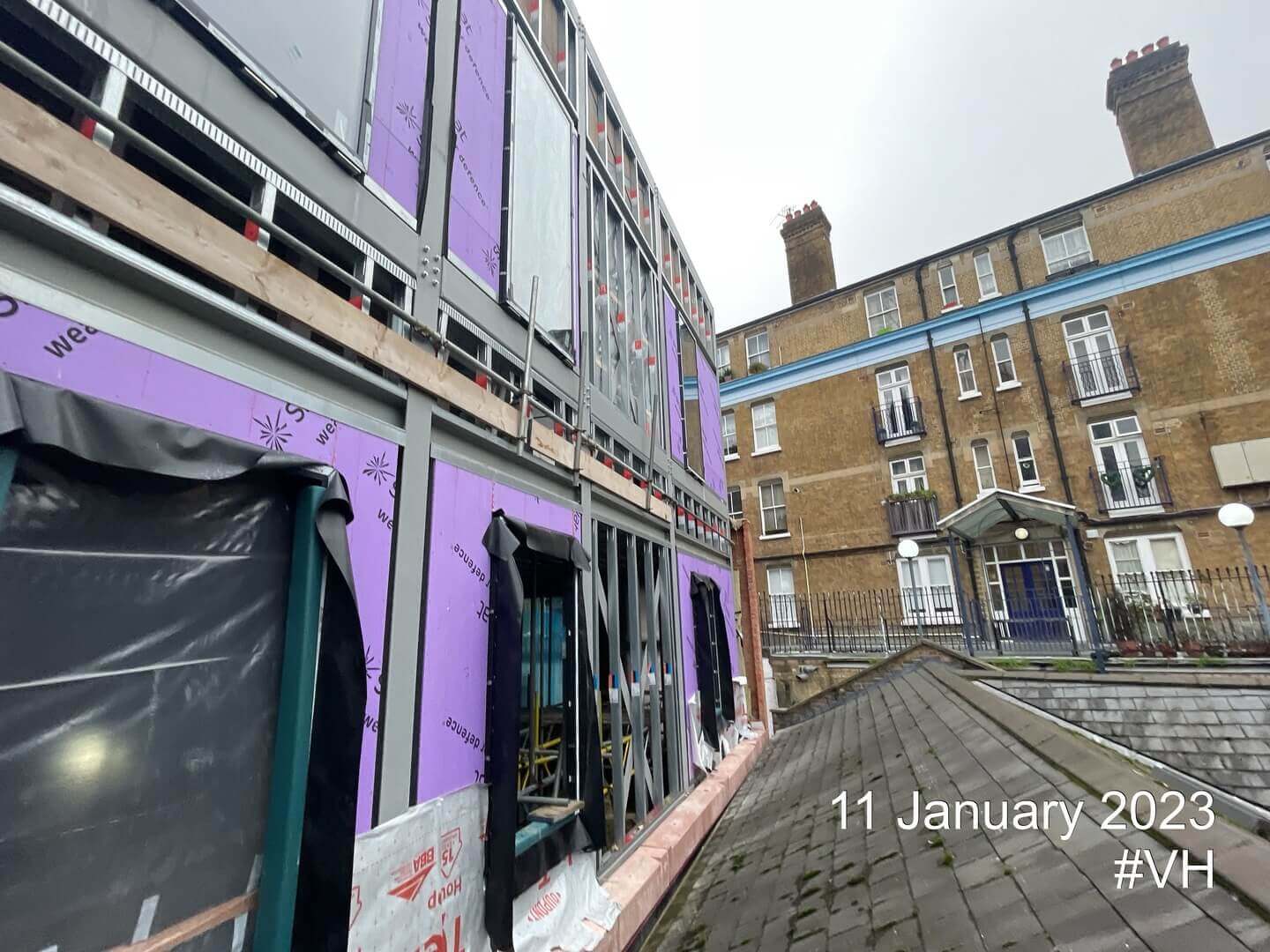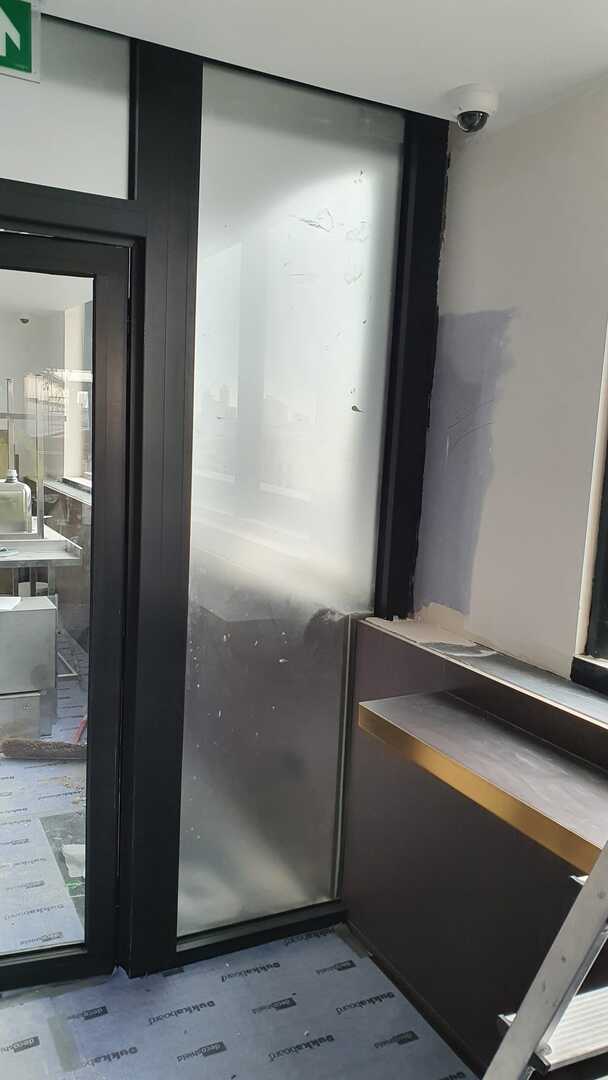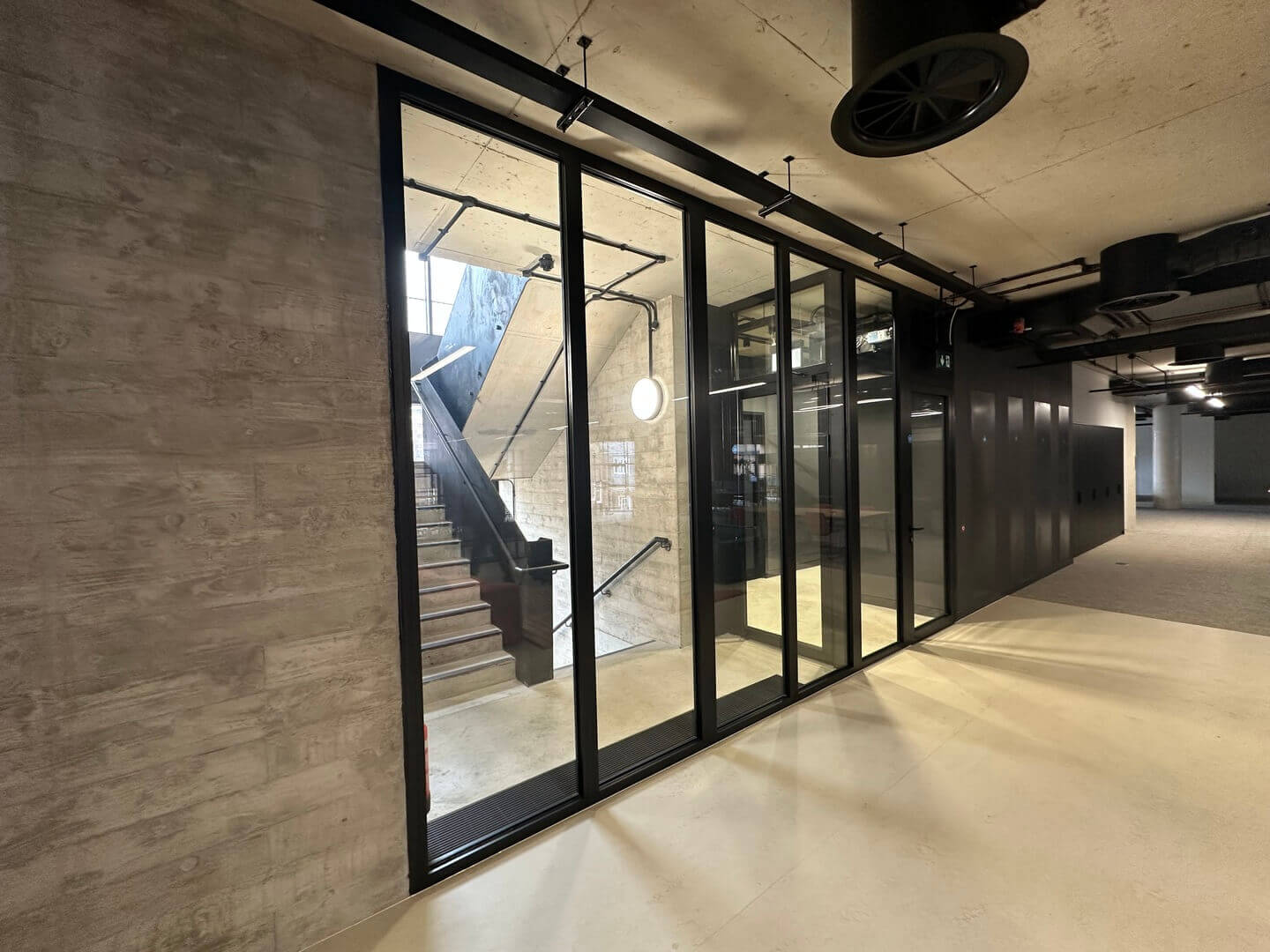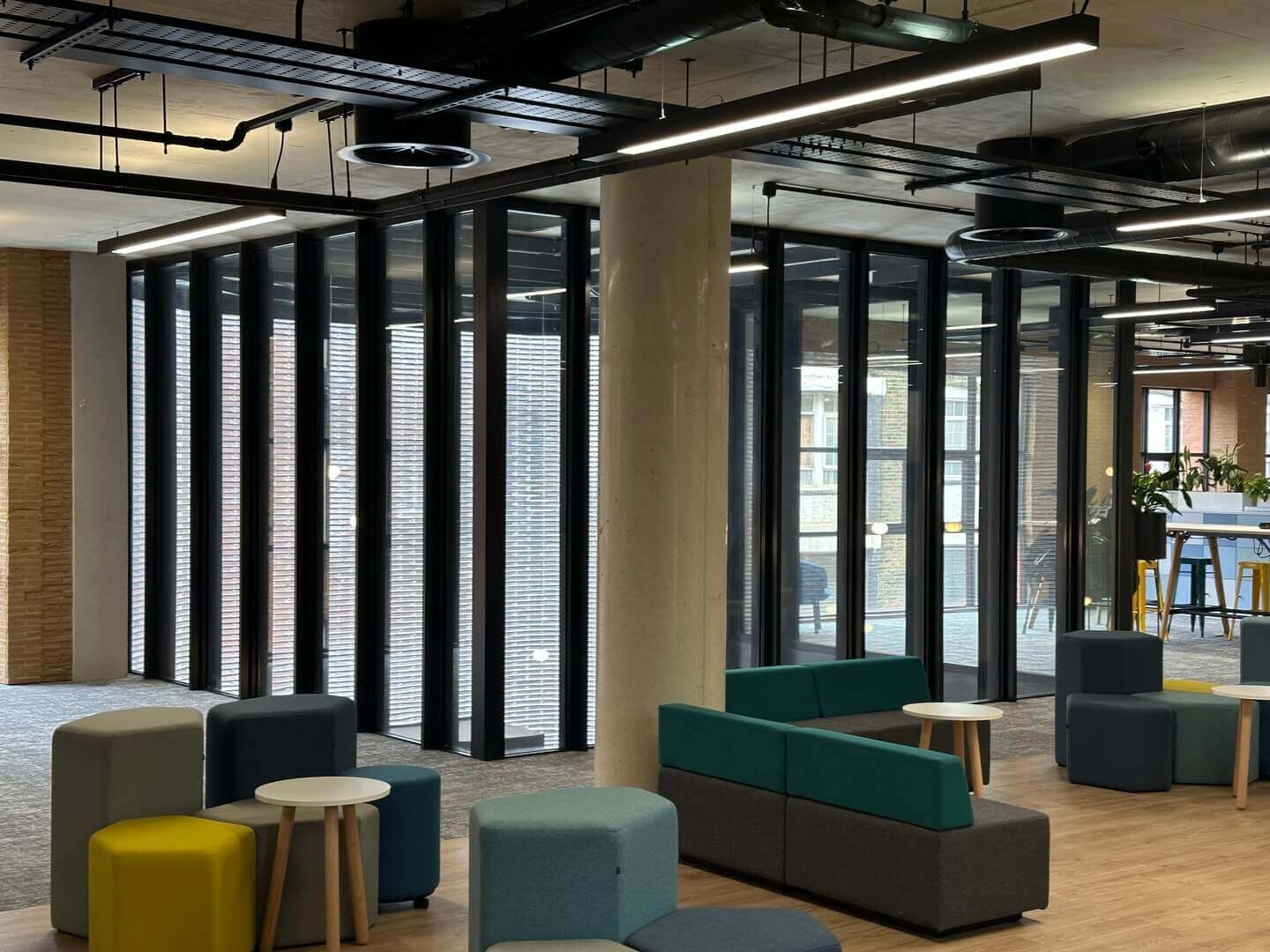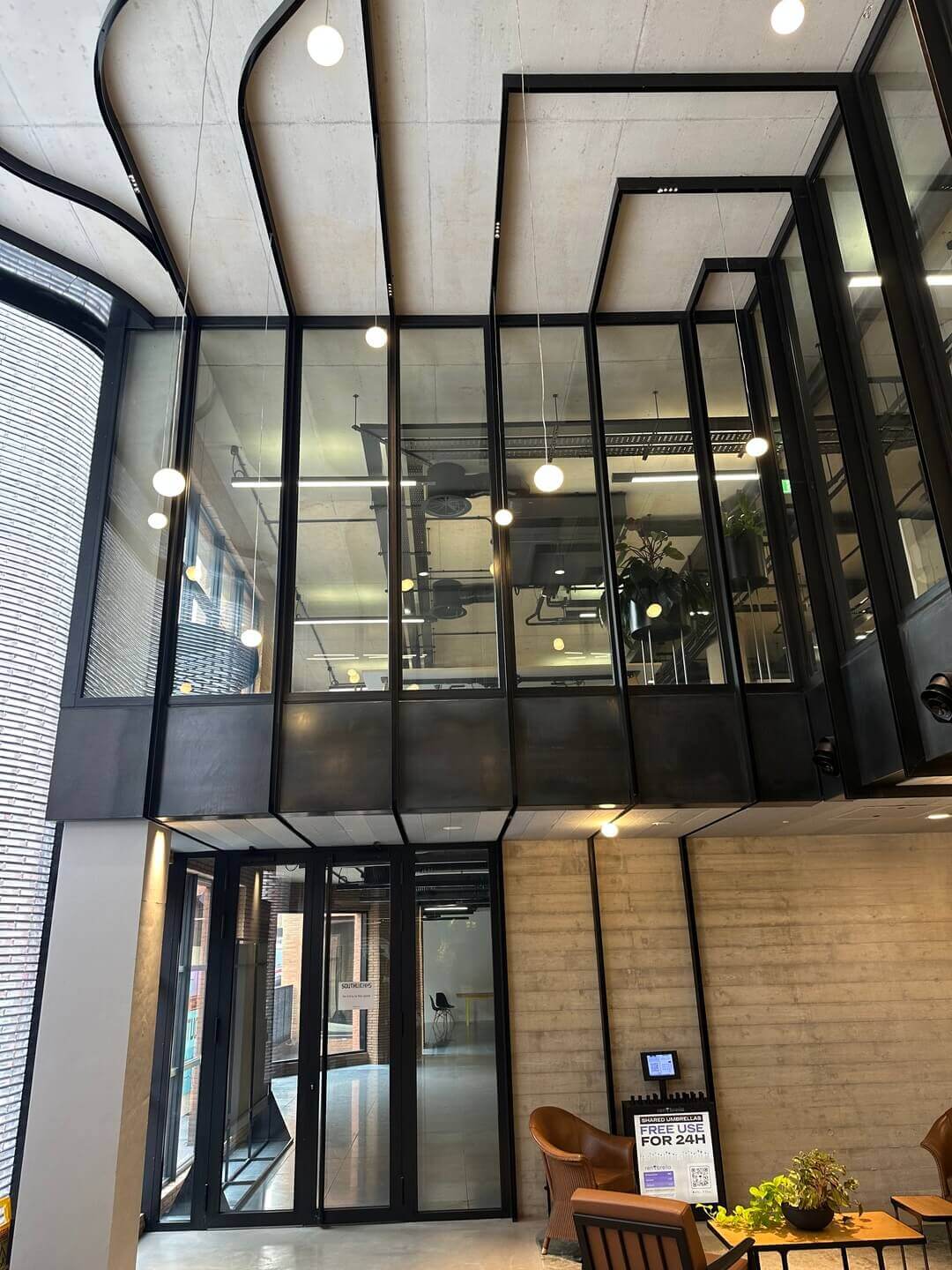A fire rated curtain wall is engineered to withstand intense heat for specified periods, creating vital time for safe evacuation and fire containment. In high-risk environments like commercial towers, hospitals, and industrial facilities, this system plays a critical role in preventing fire spread while ensuring full compliance with safety regulations.
Every fire rated curtain wall carries specific performance ratings (EI30, EI60, EI90, or EI120) that certify its ability to:
- Resist extreme temperatures without structural failure
- Block flames and smoke from penetrating to protected areas
- Maintain insulation integrity for 30, 60, 90 or 120 minutes
Fire Rated Curtain Walls Use Advanced Materials for Maximum Safety
The modern fire rated curtain wall combines multiple protective elements:
- Structural framing using thermally resistant steel or aluminum alloys
- Fire-rated glazing that maintains visibility while blocking heat transfer
- Mineral wool insulation that slows heat penetration
- Intumescent seals that expand under heat to close critical gaps
Every Fire Rated Curtain Wall is Engineered to Meet Strict Standards
In the UK, every fire rated curtain wall undergoes rigorous testing to BS EN 1364-1 and BS 476-20/22 standards, verifying its performance in:
- Maintaining load-bearing capacity during fire exposure
- Preventing smoke passage between compartments
- Retaining insulation properties throughout the rated period
Added Benefits of Using A Fire Rated Curtain Wall
A properly specified fire rated curtain wall delivers additional advantages:
- Thermal efficiency that contributes to energy savings
- Acoustic performance for quieter interior environments
- Architectural flexibility to meet design requirements
- Low-maintenance durability for long-term performance
Fireproof Curtain Walls in Complex Building
Fireproof curtain walls are particularly effective in buildings with large glazed façades or complex layouts, where fire compartmentation must be balanced with open-plan design. These systems are suitable for both internal and external walls, offering tested fire resistance while supporting structural and thermal continuity across floor levels. Their integration into fire-stopping strategies ensures that escape routes, fire exits, and protected zones remain usable during critical fire scenarios.
Advanced fire rated walls can also be integrated with sprinkler systems and automated smoke ventilation controls, improving fire safety performance at the system level. Fireproof walls with vision panels or transparent glazing are increasingly used in education, healthcare, and transport sectors, where visibility, compliance, and safety must coexist.
Third-Party Certification and Traceability
All FireResist fireproof curtain walls are manufactured under ISO 9001 quality management systems and third-party certified for traceability. This ensures that each wall system used in construction meets performance requirements not only at the time of testing, but also across manufacturing batches and installation cycles.
Ensuring Ongoing Protection with Fire-Rated Curtain Walls
To maintain optimal performance, we recommend:
- Annual inspections of all fire seals and gaskets
- Immediate repair of any damaged glazing or framing
- Regular verification of intumescent components
